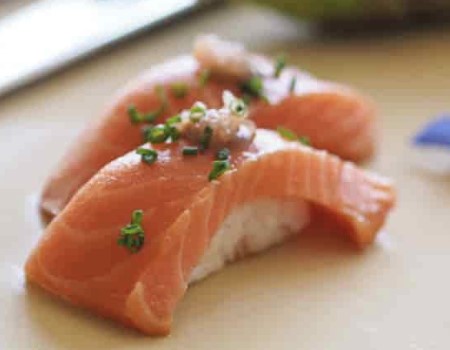The increasing global appetite for meat consumption continues to negatively impact the environment, with the use of cows, pigs and other animals for food accounting for more than 15% of the world’s greenhouse gas emissions and 57% of all food production emissions. Investments through Mercy Investment Services’ Environmental Solutions Fund are addressing consumers’ demand for meat while reducing the environmental impacts.
Alternative or cultivated proteins are developed in labs, beginning with animal cells that are fed water, salt and nutrients. The cells multiply in large tanks until they can be harvested and formed into patties or fillets. This method uses 99 percent less land, 93 percent fewer greenhouse gases and 88 percent less fresh water than traditional agriculture. Mercy Investment Services’ Environmental Solutions Fund invests in several companies developing alternative proteins:
- Believer Meats is revolutionizing meat production through cellular cultivation of chicken, lamb, beef and pork at price parity to traditional livestock rearing, but in a cruelty-free, antibiotic-free, and artificial-preservative free way. Watch this short video to learn more about Believer Meat’s cost-effective, sustainable and scalable technology.
- BlueNalu produces fish fillets of both saltwater and freshwater species without the need to raise fish. Its products are free of microplastics, toxins, pathogens and heavy metals. It’s also reducing the distance the foods is transported between production and consumption. Bluefin tuna toro will be their first commercial product.
- Mosa Meat is a trailblazer in lab-grown meat production, aiming to address the environmental impact of traditional methods. Renowned for introducing the first cultivated beef burger, the company has set an ambitious target of producing two million tonnes of lab-grown beef by 2030, contributing to a more sustainable future for the food industry.
- WildType produces sushi-grade wild salmon saku for raw dishes like sushi and ceviche that has the same amount of omega 3s and omega 6s as conventional salmon. Learn more in this short video.
- Finless Foods develops a combination of plant-based cultivated tuna, the most consumed and second most caught wild fish globally.
- Shiok Meats grows cultivated crustaceans including shrimp, lobster and crab, reducing the microplastics and parasites found in raw seafood and reducing the carbon dioxide emissions of the crustacean fishery and wild caught industry.
These represent some of the investments in Mercy Investment Services’ Environmental Solutions Fund addressing the urgent climate crisis. Learn more on our website.
